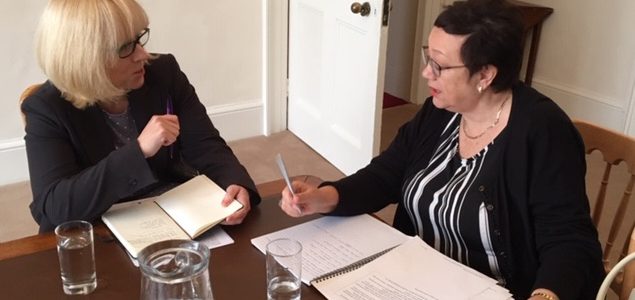How to turn role play into a positive experience

We’ve all experienced that inward groan when we have to participate in something we really don’t feel comfortable doing. We can all agree that a common cause is hearing the dreaded words ‘and now we’re going to practice that through a spot of role play’.
It seems that most people hate (or more likely, fear) it, and one could therefore argue that it is ineffective and a waste of time. But what exactly is the purpose of role play? And does Role Play for team building have potential benefits?
What is the purpose of Role Play?
Essentially it is to provide a safe environment (away from ‘real’ customers or clients) in which to practice a particular skill. However, what it generally does is provide a mouthpiece for the loudest and most confident in the room. Alongside this, it strikes fear into those who would rather poke themselves in the eye rather than speak in public. There has been a move towards avoiding the dreaded words, and instead describing it as ‘skills based practice’ but it doesn’t fool anyone.
You don’t have to just use role play to brush up on customer service skills however. It can be incredibly effective and insightful in the workplace if handled correctly. It can take on many forms; for example, we have recently been involved with role playing within an interview and recruitment process; placing candidates into a structured yet fictional situation which allows us to gauge their reactions and get a real feel of their character.
What this does is take away their ability to pre-plan answers based on what they think the interviewer wants to hear. Instead, they’re forced to react naturally to whatever our characters throw at them, allowing their true strengths (or not) to shine through.
Team Building and Role Play
Our team building activities work along the same principles – participants cannot help but be themselves as they react to our sometimes surprising and challenging actions and we can bring out qualities which can go unnoticed on a day to day basis. As one of our clients recently commented after reading the observation report we had put together for them;
“This is absolutely GREAT!! [we] have been through all the descriptions and we are amazed how accurate these observations seem to us”
So my advice would be to think very carefully about what you want to achieve, and allow others to take on the ‘roles’ and observe the reactions of the participants. This could be someone within your department who is confident in leading an activity, or an outside agency such as us.
Luckily myself and my team of actors like nothing more than getting into character; it allows us to take on the ‘embarrassment’ and for the delegates/candidates/team members to relax and be themselves.
After all, at the end of the day you’d like to see your team embracing their strengths, learning new techniques, and above all being themselves and not trying to pretend to be someone else, right?

